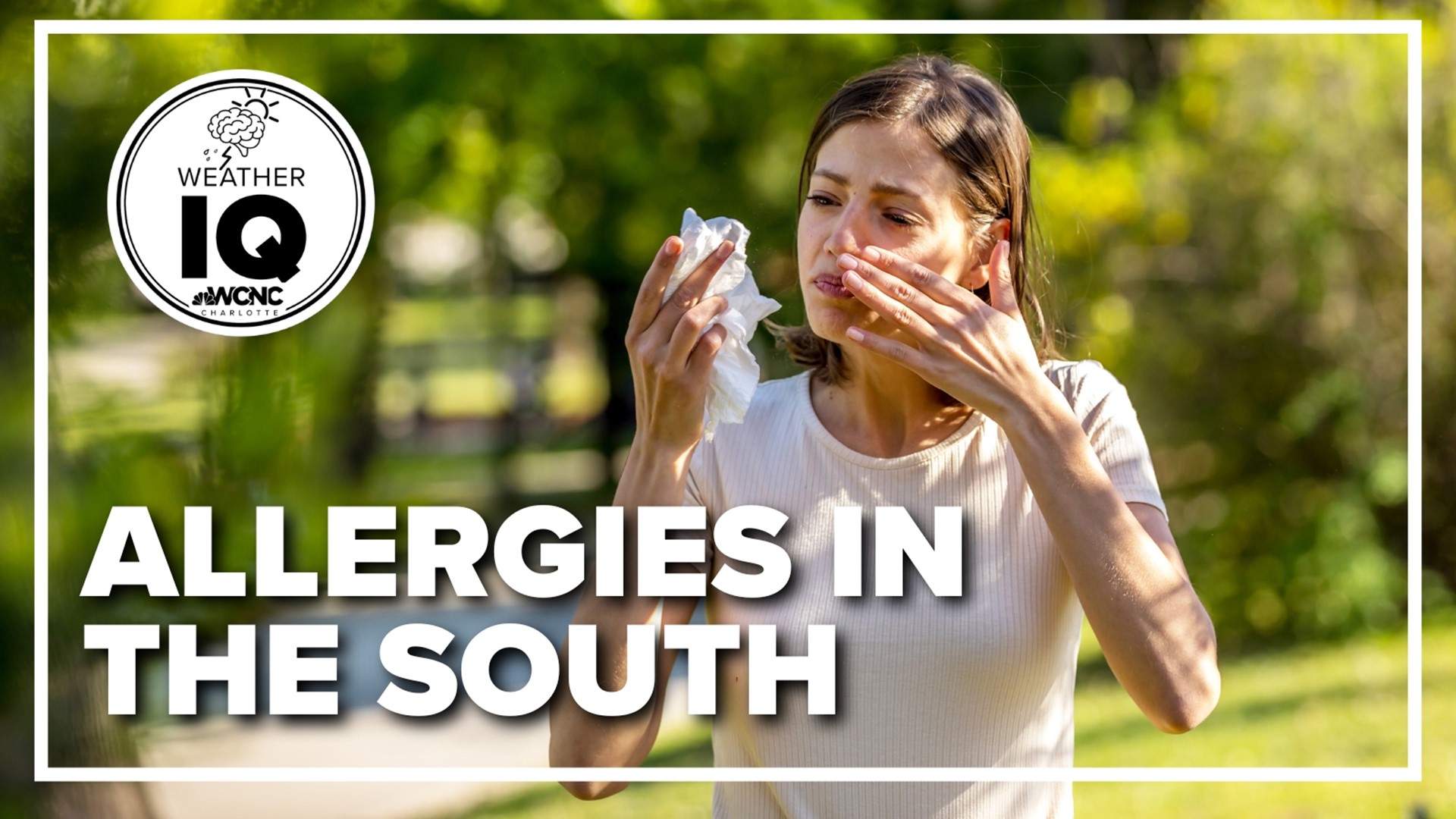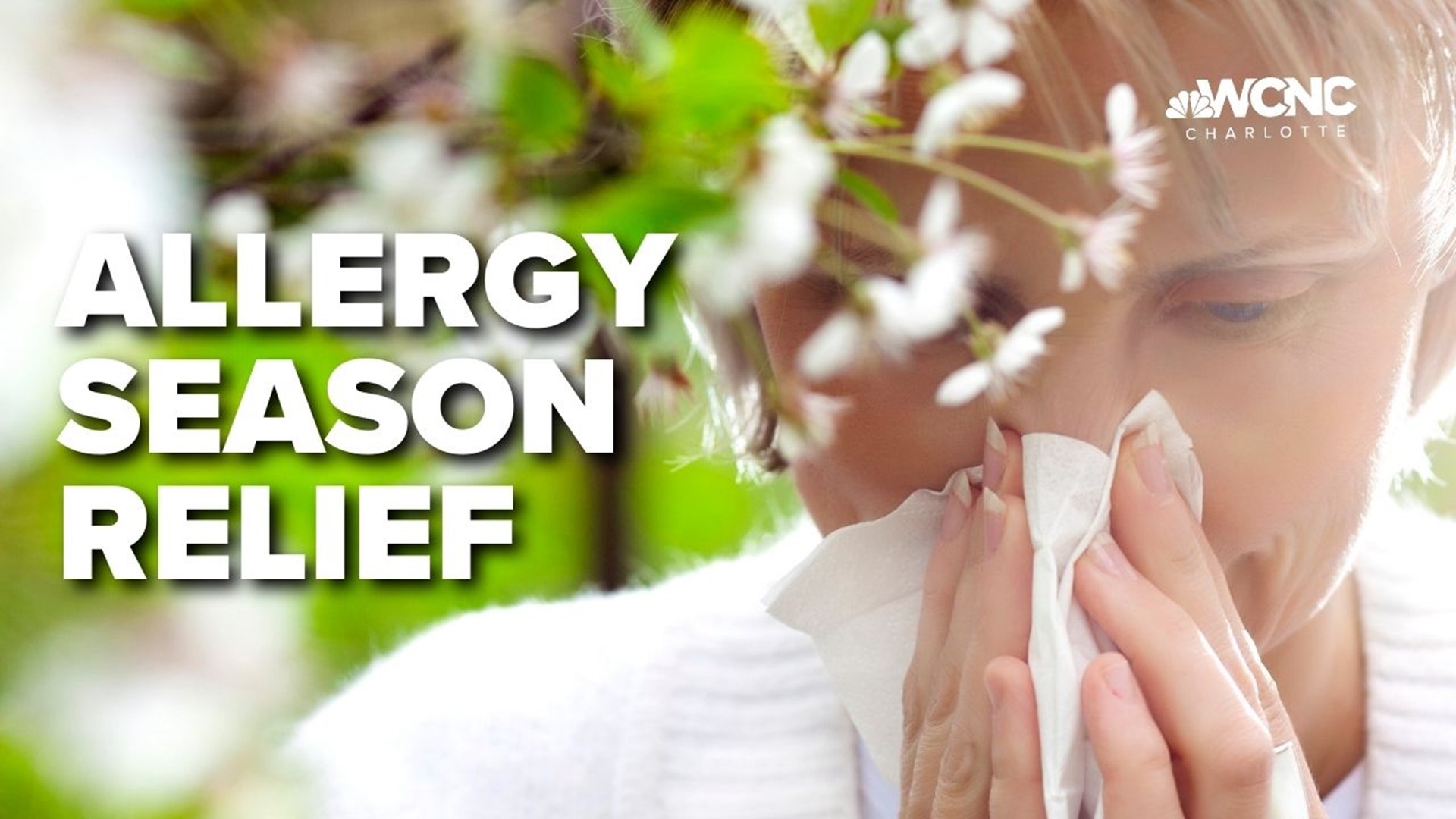CHARLOTTE, N.C. — Pollen levels have been exceptionally severe this year in the Carolina – and that severity, in part, has to do with living in the South.
Many who move to the South discover they have new or worsening allergies. A big reason for the enhanced allergy season in the South is the warmer weather and prolonged growing season for plants. This creates more potential exposure to pollen.
"We have very high level of exposure to all kinds of plants," Dr. Gray Norris, a doctor at Carolina Asthma and Allergy Center, explained. "And it really just can send people into allergy misery."
Norris said bigger cities, like Charlotte, can also have an enhanced allergy season because of pollution. Pollution releases carbon dioxide into the air, and that carbon dioxide feeds plants. As a result, the plants create more pollen.
"Really good studies show that urbanization - especially with exposure to pollutants, car exhaust, diesel exhaust - does increase the risk of allergies developing and makes them more severe," Norris explained. "So urban centers have higher grades, have higher rates of asthma, and higher rates of allergies."
Residents living in the South are also subjected to more allergens when the region experiences warmer winters.
Warmer weather prolongs the pollen season and prevents plants from dying or becoming dormant. This can create exposure nearly all year long.
Managing allergies when outside for prolonged periods of time
Spring typically means warmer weather, outdoor festivals, and sporting events – but that also means prolonged exposure to allergens.
Dr. Benjamin Missick, a family medicine doctor with Novant Health, said management is all about consistency.
"Whatever you do that works one day, you can't neglect to do it the next day," he explained.
Whether it’s eye drops, nasal sprays, rinses, or over-the-counter medicine from a pharmacy, keeping up the routine is paramount to managing allergy season.
Drops, sprays, and other medicines can also be easy to carry with you when outside for prolonged periods of time.
Pollen is not just outside. It can also be carried inside on your person.
"Making sure that you change clothes when you come inside, [and] shower that night, especially if you if your hair was exposed," Missick explained "It's that's the pollen that's going to end up on your pillow."
While Missick is hesitant to suggest fully masking up as many did during the pandemic, a mask can substantially lower your exposure to pollen. This is especially true in areas with a lot of trees, flowers, or recently-mowed grass.
Contact Brittany Van Voorhees at bvanvoorhe@wcnc.com and follow her on Facebook, Twitter and Instagram.


